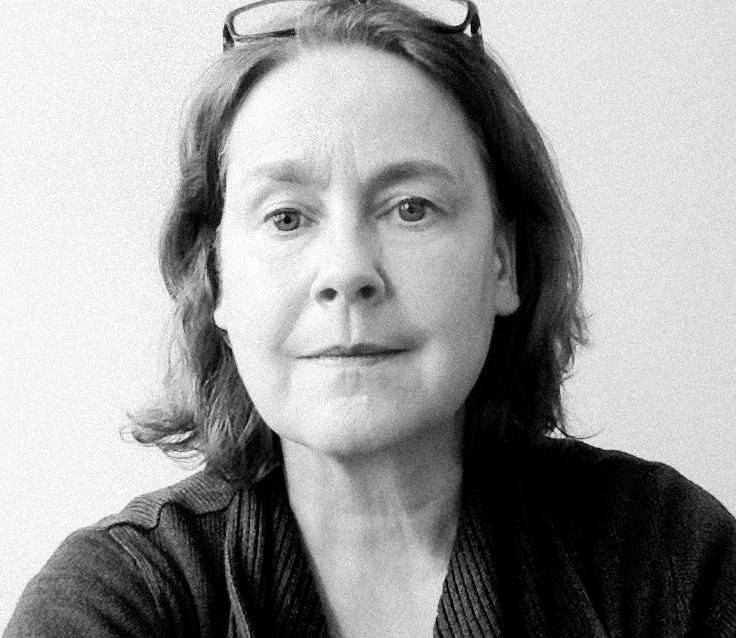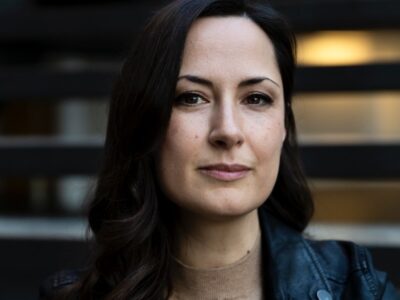Nine questions for Publix resident Reporters Without Borders
In each newsletter, we are introducing the organisations that are moving into the Publix building. Featured this time is Reporters Without Borders.
We spoke with Katja Heineman, head of assistance and fellowships.


Reporters Without Borders focuses on media professionals under threat. What is your greatest concern at the moment?
The situation for reporters around the world is alarming. In Myanmar, China, Vietnam, Somalia, Eritrea, the Sahel, Egypt, Iran, Syria, Saudi Arabia, Belarus, Mexico – and that’s just to name a handful. We are currently especially concerned about the situation of journalists in Afghanistan following the takeover by the Taliban, the Russian invasion of Ukraine and the situation for media professionals in the entire country, and of course the newly erupted war between Gaza and Israel, which also poses a threat to journalists in other countries in the region.
What is the main focus of your work?
In warzones and crisis areas, we supply essential safety gear to protect the lives of working journalists: bullet-proof vests, helmets, first-aid kits, solar-power flashlights and the like. After attacks on journalists, we pay for medical treatment, for example. When equipment is destroyed, we replace it. We provide legal assistance in cases of unjustified arrests and help families make ends meet when the primary source of revenue is cut off. When people face acute threats to their lives and their safety in their home countries, we help them to safety in exile.
What is the ultimate goal of your work?
Our goal is for all people to have free and unhindered access to information. Independent journalism is the foundation of an informed society. Without it, people cannot make informed and free decisions. Every year, we publish the World Press Freedom Index. Unfortunately, there are only very few countries and territories in the world where the situation for press freedom is good. Which means that our work is necessary at least until we see a “positive situation” for press freedom everywhere in the world.
What is the biggest challenge you currently face?
At the moment, it is the difficult situation faced by media professionals in Afghanistan. Germany has implemented the Federal Admission Programme for Afghanistan (BAP), which was conceived as a pipeline for 1,000 extremely endangered people per month to come to Germany from Afghanistan. Since the Taliban took power in the country and the BAP was established, we have been doing our best to verify the applications of particularly endangered media professionals and support their entry into Germany. The truth is, though, that one year after the start of the BAP, only one of the people we have proposed has received preliminary approval and must first make it from Afghanistan to Pakistan for a security interview. And all the endangered media professionals who fled to Pakistan earlier don’t even fall under the purview of the BAP. At the same time, Pakistan is deporting large numbers of people back to Afghanistan. We can’t yet foresee with any certainty what that means for media professionals.
What has your greatest success been in recent months?
Since Russia’s attack on Ukraine, we have been able to secure almost 140 humanitarian admissions to Germany for Russian media professionals and their families (as of mid-November). In Russia at the moment, even just sharing a post on social media can land you in prison. That’s why it is vital that critical and independent journalists are able to continue working in exile.
What kind of support do you provide?
In a digitalised world, securing communications and protecting sources is vital. We provide grants to media professionals from around the world, allowing them to take a much-needed break in a safe place, carry out a difficult reporting project or receive training in digital self-defence. Our Digital Security Lab in Berlin also examines journalists’ equipment for traces of spyware.
What does journalism need most at the moment?
Journalism needs recognition from society and politics that it is extremely beneficial for our democracy and thus for the lives of each and every person. We can see from the climbing number of attacks on media professionals – also in Germany – that such recognition is increasingly withheld.
Who deserves more attention?
All those journalists who have come here due to acute threats to their lives. They have pursued dangerous reporting projects with extreme courage and possess invaluable expertise that can be extremely useful for German media outlets.
What should we be watching and listening to?
The documentary film “Etilaat Roz,” about the critical Afghan daily newspaper, its important work and its increasingly hopeless situation following the Taliban takeover in 2021. And I can recommend our podcast “Pressefreiheit Grenzenlos” (Borderless Freedom of the Press). In the podcast, media professionals from around the world discuss the conditions in which they work, their reporting projects and the daily threats to their lives. Rarely does one get such direct insight into the pressures facing journalists in other countries and why they keep on going.
More at reporter-ohne-grenzen.de

